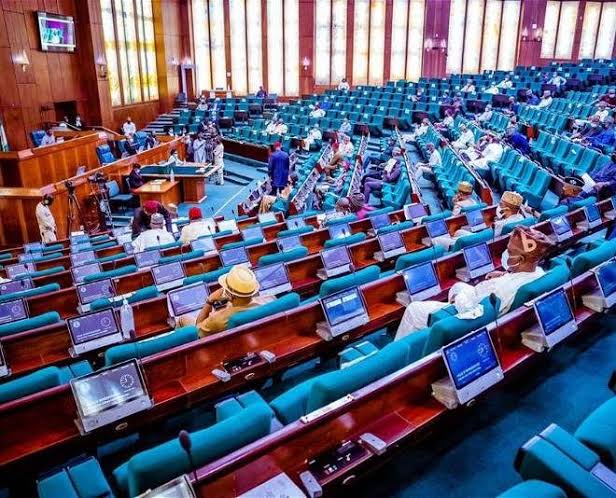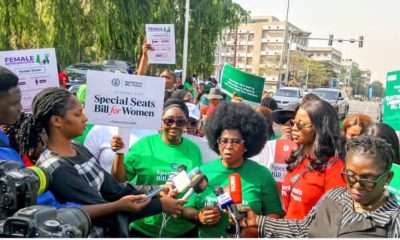National
NIGERIA’S LAWMAKERS UNDER FIRE OVER LAVISH LIFESTYLES, SILENT REPRESENTATION

By Diafa Doubra
Nigeria’s civic advocate, Comrade Preye V. Tambou called out the country’s lawmakers for what he described as a chronic disconnect from the people they were elected to represent.
According to Tambou, the legislature often seen as the cornerstone of democracy had become a monument to betrayal, prioritising personal luxuries, political loyalty, and silence over service delivery, oversight, and accountability.
(They sit in ornate chambers, adorned in agbada, wielding gavels without substance, and performing democracy without embodying its values,the statement read).
Tambou pointed out a troubling cycle of behavior, where lawmakers engage citizens actively during election campaigns only to vanish once elected.
(Young people campaigned for them, elders voted for them, and the unemployed believed in them. But once sworn in, their phones go off, their gates remain shut, and their conscience disappears, he said.
He alleged that this recurring pattern has weakened public faith in democratic institutions and has transformed elections into seasonal rituals of deception, where voters are given wrappers, salt, and slogans in exchange for their silence for another four years.
The report highlighted several missed opportunities by the National Assembly to act in times of national crisis. For instance, during the controversial removal of fuel subsidies and the consequent inflationary wave that hit Nigerian households, there was no immediate legislative action to protect citizens.
Instead, lawmakers were accused of focusing on personal welfare.
(While Nigerians cried under economic pressure, lawmakers debated SUVs for themselves and passed the most bloated budget in recent history, padded with mysterious constituency projects and irrelevant agencies) the statement continued.
Even during Nigeria’s recurring insecurity challenges, Tambou stated, the legislature offered no comprehensive legislative blueprints to address structural problems, merely issuing press releases and observing moments of silence.
The report raised alarm over the treatment of outspoken female legislators, who, according to Tambou, are met with ridicule, intimidation, or institutional silence whenever they challenge the status quo.
(When a female voice rises with fire and conviction, the response is not engagement but aggression—not dialogue, but disciplinary threats) Tambou wrote.
He criticized the gendered culture in politics that sidelines women who demonstrate strength, calling it not just patriarchal, but a calculated exclusion of conscience.
At the subnational level, the situation appears even more dire. Most State Houses of Assembly, Tambou claims, have surrendered entirely to the control of governors.
(They are not arms of government but extensions of the executive. Governors hand them scripts, and they read them without edits) he said.
The report referenced Zamfara State, where lawmakers reportedly demanded multi-million naira severance packages despite widespread poverty and insecurity in the state, as evidence of how detached some state lawmakers have become from public reality.
Tambou also turned his attention to the Local Government Legislative Councils, which he described as phantom institutions whose members remain largely unknown and ineffective.
(Most Nigerians don’t even know the names of their local councillors. These elected officials should be closest to the grassroots, but their loyalty lies with party structures and local chairmen not the people). He noted that these councillors rarely perform oversight or participate meaningfully in governance, yet continue to draw public funds.
Tambou stated that Oversight visits have become travel allowance trips. There is no real accountability. They only speak when their personal interests are threatened,” he said.
He alleged that legislators now function more as protectors of political elites rather than as defenders of the common man.
Tambou’s statement ended with a warning that Nigeria’s democracy is being eroded not just from the top, but from the inside out by lawmakers who prioritize applause, loyalty, and luxury over service and truth.
(Representation has died. The legislature has become a weight dragging the country backwards. The cost of their silence is paid in blood. The price of their negligence is borne by children out of school. The reward for their betrayal is the suffering of the poor).
Tambou emphasized that unless drastic reforms are undertaken, and legislators return to their true role as servants of the people, the nation’s progress will remain stunted.
(This is no longer about bad governance it is an active conspiracy against truth and transparency), he said.













